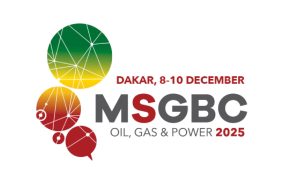The delivery of quality infrastructure projects is inseparable from the commitment to continuous professional development, particularly through mentorship, asserts Makhaotse Narasimulu And Associates (MNA) Consulting Engineers.
With decades of combined experience, MNA underscores that sustained mentorship promotes technical excellence, risk mitigation and leadership development, critical for long-term project success.
Infrastructure projects are complex, often spanning multiple years from conception to completion. Engineers involved in these projects learn through practical experience that mentorship amplifies the lessons acquired throughout a project lifecycle. Agilen Moodley, Director of Human Resources MNA, emphasises that attending to mentorship continuously enables knowledge transfer, allowing lessons learned on one project to improve outcomes on subsequent ventures.
“You cannot grow without mentorship,” says Moodley. “Engineers entering the industry often possess strong theoretical foundations but limited practical exposure. Mentorship bridges this gap, helping young professionals navigate the often-complex developmental stages from student to professional engineer,” he notes.
MNA’s mentorship model ensures that junior engineers are not confined to narrow tasks but are exposed to a broad spectrum of engineering functions. This rotational experience builds a foundation of understanding across water, transport, and structural disciplines, empowering engineers to develop holistic views and problem-solving skills. The firm’s approach also recognises the limited availability of experienced mentors across the sector by expanding middle management roles, which provides peer mentorship and leadership guidance.
“Middle management, being closer to day-to-day project work, is well-positioned to offer timely advice and insights that are directly relevant to junior engineers’ immediate tasks and development goals. It’s not just about senior directors mentoring juniors anymore. Middle managers have become the backbone of mentorship, offering continuous leadership and peer guidance. They form the vital link bridging the experience gap while expanding leadership capacity within the company,” Moodley highlights.
Another benefit of the MNA mentoring programme, he said, is that the Water and Sanitation division is now majority-led by females who were previously underrepresented in leadership roles.
Through regular project collaboration, knowledge sharing sessions and formal appraisals, mentorship becomes embedded in everyday business operations at MNA.
Importantly, the company promotes secondments with municipal partners, offering mentorship to public sector engineers for skills transfer. These partnerships help build institutional capacity within municipalities, enabling engineers to register professionally and contribute effectively to critical infrastructure projects that serve communities.
While constraints such as time pressures present challenges to sustained mentorship, MNA’s structured approach – with clear career pathways, defined mentorship goals, and performance-linked progression – helps overcome these obstacles. The company fosters a culture of shared responsibility, where mentors and mentees actively engage in continuous learning.
Mentorship also plays a vital role in fostering ethical and responsible practice among engineers, essential for infrastructure projects that impact public safety and wellbeing. “In mentoring, we don’t just pass on technical knowledge but cultivate engineers’ ethical resilience – preparing them to stand firm on principles, raise concerns, and make decisions that may not always be easy, but are right,” Moodley states.
Engineers trained under such mentorship are better prepared to meet regulatory requirements, standards, and community expectations. “Ethical mentorship is fundamental because the infrastructure projects we deliver affect entire communities. It’s our duty to ensure that every engineer we train understands the gravity of their responsibility – that public safety and trust are paramount.”
MNA’s mentorship success extends beyond the firm, with many previous mentees excelling in government and private sectors, carrying forward the firm’s values and expertise. This cycle of mentorship strengthens the overall engineering profession in South Africa, ensuring quality infrastructure delivery becomes the norm rather than the exception.
“It’s a strategic investment, not just a compliance exercise,” Moodley concludes. “It benefits both the employee and the employer – growing a skilled, confident workforce that improves project delivery and uplifts the industry and the lives of others as a whole.”
For more information visit: https://mna-sa.co.za/







